You committed to run the Sole of the City 10K, you’ve logged some tough miles over the past weeks, and now the event is almost here! But do you have a plan for eating in the days and hours before your race to ensure that you’ll be well-fueled and ready to run? I’ve got you covered with a simple checklist…
1-2 Weeks Out:
Eat Nutritious Foods
Prime your body for a great run by feeding it well. Choose lots of fresh or frozen vegetables, plenty of seeds & nuts for healthy fats, lean protein and whole grains, and you won’t have much room on your plate for sugary, salty, fatty food. An easy way to amp up the nutrition in your diet is to add a big salad for lunch or dinner (or both!). For a meal-sized salad, start with a bed of dark leafy greens, add layers of vegetables (carrots, cucumber, bell peppers, tomato), a half cup of cooked beans (drained and rinsed right from the can is just fine), a big scoop cup of cooked quinoa or barley, and top with raw seeds and nuts. Dress it with a mix of apple cider vinegar and honey, or a prepared dressing without lots of added sugar, and enjoy!
Day Before the 10K:
- Nothing new!
Predictable food the day before your race will lead to predictable digestion and elimination. Enough said. - Drink up
The water you drink today will hydrate you during the race tomorrow. - Take it easy at the pasta party
While it’s important to eat a good source of carbohydrates the night before Sole of the City, there’s no need to go back for seconds or thirds on pasta and bread, since carb loading is only helpful for races longer than a couple hours. Instead, enjoy a dinner with a good source of carbs, some fat and protein. Though fiber is a very important part of your diet, there’s no need to load up on fiber this night, or you may end up feeling gassy or bloated in the morning.
Morning of the 10K:
- Eat Early
I cringe when I see runners step up to the start line with a bagel in one hand and a banana in the other. Eating right before a run is asking your body to multitask: 1. Send blood to my digestive tract to digest food, and 2. Send blood to my legs so I can run. No one is coming out a winner. Give at least an hour for digestion on race day—90 minutes is even better, and for some with especially sensitive stomachs, two hours is the sweet spot to allow for enough digestion to run comfortably. - Fuel up
By now, you should have experimented with different breakfasts before your runs, so eat what works best for you! Classic carb-rich race day breakfasts include a bagel or toast with a smear of peanut butter, oatmeal and a banana, or a bowl of rice. Unless you’re well-practiced in eating them before a run, avoid eating a lot of fat, fiber and protein, which take a long time to digest, and don’t provide immediate fuel. - Drink up
Drink water or tea with your breakfast, or if you’re a coffee drinker, enjoy that. Drink a little extra water, but drink it early—pounding giant bottles of water in the hour before your race will likely leave you looking for a porta-john within the first or second mile.
During the Race
- Drink as needed
We’re all a little different when it comes to hydration and running. Drink on the course as you need it, and if it’s an especially warm day, drink a little extra. - Skip on-course fueling
Unless you’re hypoglycemic, diabetic, or have another medical condition that impacts your blood sugar, you probably don’t need to eat anything during your 10K—especially if you’ve followed this checklist and eaten well the evening before and the morning of the race. Supplementing with carbohydrates becomes important in longer races, though: See my recent post on that topic here.
After the Race
- Eat some carbs and protein
Once you’ve crossed that finish line, give yourself a big pat on the back, and pick up a bottle of water and a snack with some carbohydrates and a little protein. Bananas and bagels are post-race food staples because of their carb content. Plain yogurt, peanut or almond butter, or nuts provide a nice source of post-race protein. If you have a weight loss or weight management goal in mind, be careful not to overestimate how much of a “reward” you’ve “earned” on the course. A slice of pizza is fine, but a day of splurges including pizza, fries, burgers, beer and ice cream will set you back.
If you still need support on creating a healthy diet to support your active lifestyle, consult a professional like me for support. Here’s wishing all Sole of the City runners speedy feet and a fun time!
About the Author: Lauren Shafer, Empowered Eating Expert
Lauren is a certified Health Coach who helps busy Baltimoreans articulate their health + wellness goals, and make measurable, sustainable diet and lifestyle changes for lasting transformation. Though she would never be described as athletic in her youth, Lauren started running as an adult, begrudgingly at first, until she discovered she actually enjoyed it. Now an 8-time marathoner and 3-time ultra-marathoner, you’ll frequently find Lauren running on roads and trails with her husband John and dog Osita.
To learn more about Lauren, visit www.live-full.com or www.facebook.com/LiveFullBaltimore. Contact her at lauren@live-full.com.



